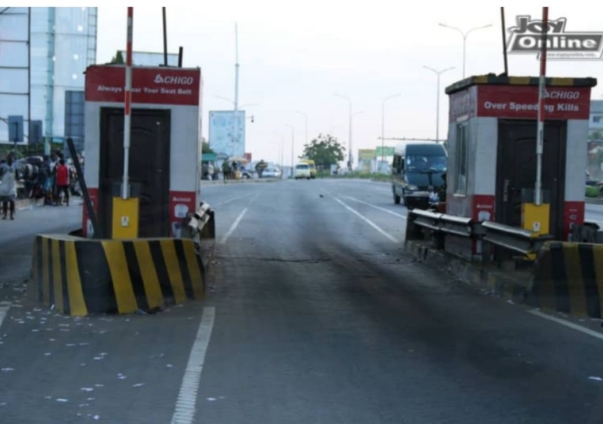
Audio By Carbonatix
As Ghana prepares to reintroduce road tolls, experts have observed that a reliable and robust database will be critical to the success of a digitalised system.
President Mahama recently indicated the government is considering digitalising the country’s toll booths to allow for car owners to use their Ghana Cards and mobile money accounts to pay road tolls under an automated system.
But according to Ing. Dr. William Ackaah, Head of the Transportation Engineering Division at the Building and Road Research Institute of the Council for Scientific and Industrial Research (CSIR-BRRI), a well-structured data system that links vehicle registration numbers directly to owners will enable proper monitoring and accountability.
“If we have a very strong database, then it is possible for us to link the vehicle registration numbers to the vehicle owners so that we will be able to track and get them,” he told David Akuetteh on Luv FM.
Dr. Ackaah noted that Ghana’s current challenges with enforcement and tracking stem largely from weak data infrastructure.
“We need to build a strong database. Most of our problem is the fact that we don’t have a strong database, a reliable one. The Ghana Post GPS address, I don’t know how we use it now to track where people live,” he said.
Citing challenges with national identification and telecom records, Dr. Ackaah questioned the country’s ability to manage the automated toll compliance under the current systems.
“My only problem is how we are going to trace people with our database. Already, we have issues with the mobile registration system. Some people can use some IDs, which the current communication minister says he’s going to do a re-registration.
“We have instances where people borrow money from MTN, they know what they are doing. They will make sure that money doesn’t get into their account. That is why I would prefer we have a prepaid system,” he added.
As part of the solution, Dr. Ackaah recommended implementing flexible toll payment plans to reduce the burden on road users and encourage compliance.
“They can have a daily plan which will be flexible so that they don’t pay so much. Let’s say you can buy a daily plan for Gh¢10 and use it as many times as you can, or you can have a weekly or monthly plan, and as you buy the plan, the price gets reduced,” he suggested.
Latest Stories
-
Six critically injured in gruesome head-on collision near Akrade
2 hours -
Gov’t to extradite foreign national who secretly filmed Ghanaian women to face prosecution – Sam George
2 hours -
U20 WWC: Black Princesses to play Uganda in final round of qualifiers
3 hours -
‘I will never forget you’ – Kennedy Agyapong thanks supporters, NPP delegates after primaries
4 hours -
Woman found dead in boyfriend’s room at Somanya
6 hours -
Woman feared dead after being swept away in Nima drain amid heavy rain
6 hours -
Court grants GH¢10k bail to trader who posed as soldier at 37 Military Hospital
6 hours -
Tano North MP secures funding to reconstruct decades-old Yamfo Market
6 hours -
Haruna Iddrisu discharged after road traffic accident
7 hours -
Kenyans drop flowers for Valentine’s bouquets of cash. Not everyone is impressed
7 hours -
Human trafficking and cyber fraud syndicate busted at Pokuase
7 hours -
Photos: First Lady attends African First Ladies for Development meeting in Ethiopia
7 hours -
2026 U20 WWCQ: Black Princesses beat South Africa to make final round
8 hours -
World Para Athletics: UAE Ambassador applauds Ghana for medal-winning feat
9 hours -
Photos: Ghana’s path to AU Chairmanship begins with Vice Chair election
9 hours

